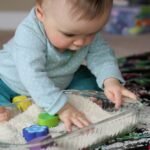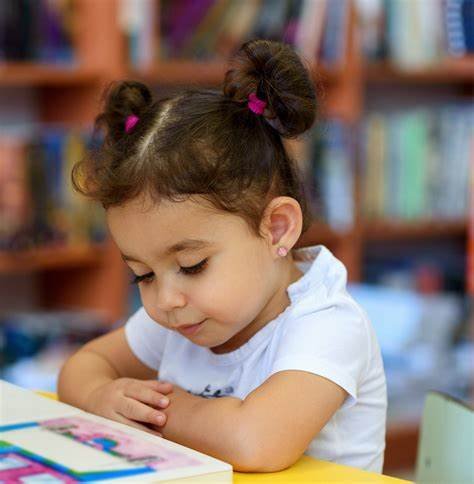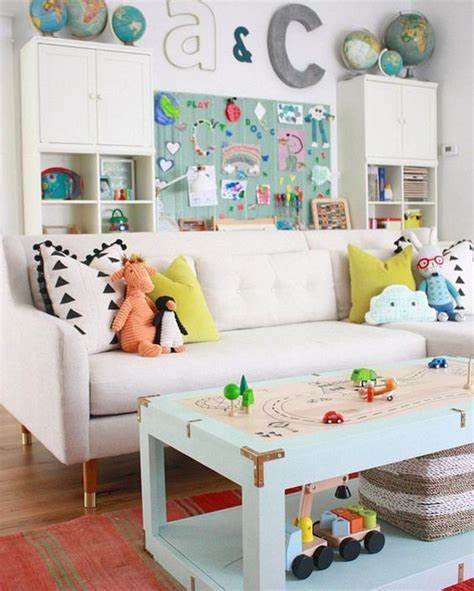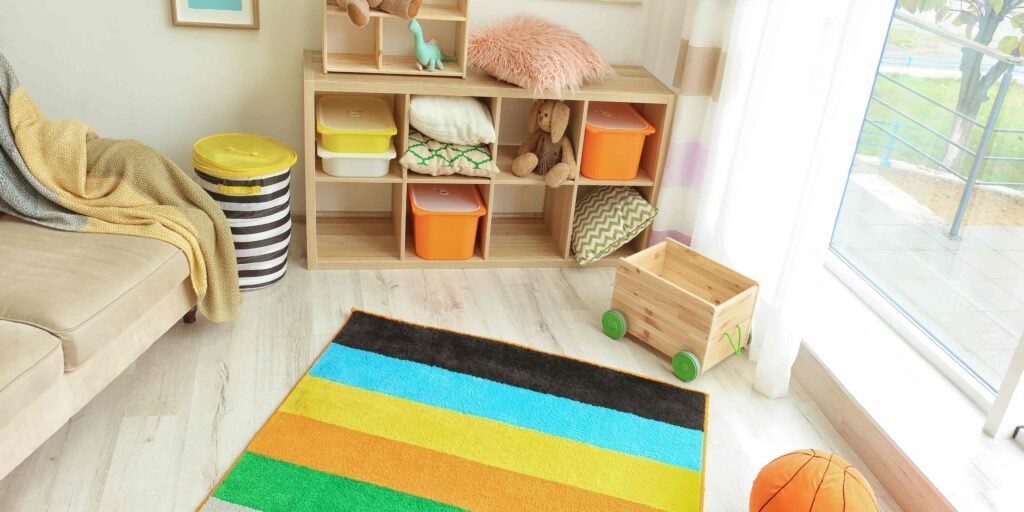The first year of a baby’s life is a crucial period for brain development. During this time, babies are rapidly learning about their environment and honing important cognitive, sensory, and motor skills. The right toys can play a significant role in supporting this growth. By choosing developmentally appropriate toys, you can encourage your baby’s curiosity, coordination, and early learning.
Sensory Toys
Sensory play is essential for infant brain development, as it stimulates the senses and encourages neural connections. Toys that involve different textures, sounds, and colors help babies explore and understand their world. Rattles, soft fabrics, and toys with varying textures allow infants to engage with tactile sensations. Toys that produce gentle sounds, like soft musical toys, can also enhance auditory development and help babies associate sound with movement or actions.
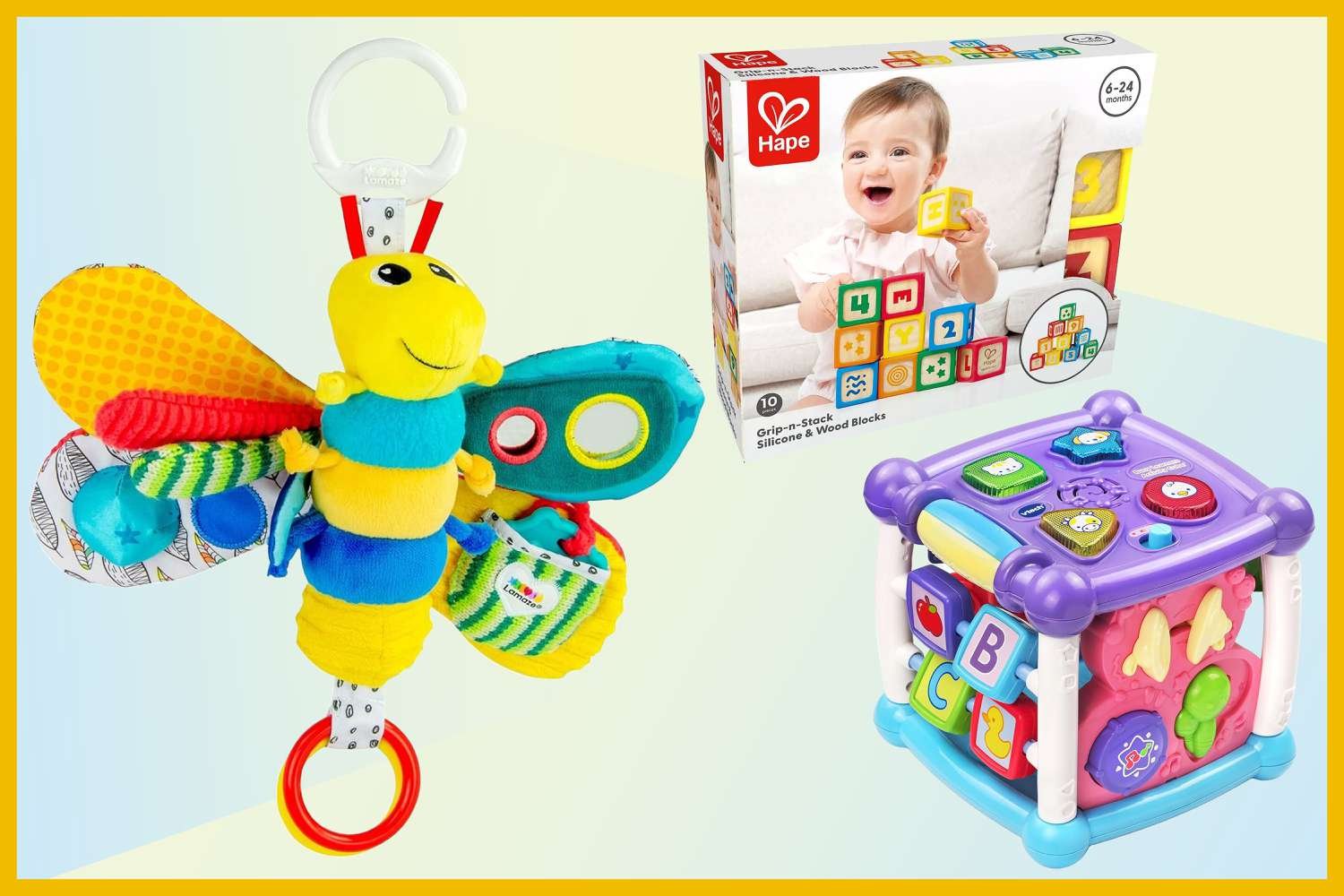
Interactive Toys
Interactive toys are excellent for engaging infants and stimulating cognitive development. Toys that light up, make sounds, or encourage baby to press buttons or pull levers help improve cause-and-effect understanding. These toys also support hand-eye coordination as babies learn to manipulate objects. Popular options include soft, light-up toys or activity centers with buttons, mirrors, and movable parts.
Stacking and Nesting Toys
Stacking and nesting toys are fantastic for developing fine motor skills and spatial awareness. Simple blocks or rings that stack on top of one another help babies practice hand-eye coordination, concentration, and problem-solving. These types of toys encourage babies to experiment with different arrangements, fostering creativity while strengthening cognitive skills.
Soft Books
Soft books with colorful pictures, textures, and different materials provide both visual and tactile stimulation. They promote early literacy skills, even in infants, as they begin to recognize shapes, colors, and objects. Books also promote bonding time between parent and child while creating a relaxing routine. Look for fabric or cloth books with simple designs and interactive elements like crinkly pages or mirrors.
Mirrors
Infants love looking at themselves in the mirror, and this simple activity plays a vital role in their cognitive development. Mirrors help babies develop self-recognition and an understanding of their own identity. Toys that include a mirror or standalone baby-safe mirrors encourage curiosity and support visual development as babies explore their reflections.
Musical Toys
Music has a profound effect on infant brain development. Toys that play gentle melodies or allow babies to create sounds help with auditory processing and rhythm recognition. Instruments like tambourines, maracas, or xylophones (designed for infants) encourage babies to explore sound-making while developing coordination. Furthermore, engaging with music fosters emotional connections and relaxation.
Activity Mats and Gyms
Activity mats and gyms are perfect for newborns and young infants. These mats often feature hanging toys, mirrors, and bright colors to encourage reaching, batting, and visual tracking. They support physical development, such as strengthening neck and shoulder muscles during tummy time, while also stimulating cognitive skills through play. As babies grow, these gyms can evolve into a space for sitting and exploring.
Push and Pull Toys
As infants begin to gain more control over their movement, push and pull toys help develop their gross motor skills. Toys like push carts or animal figures with wheels encourage babies to crawl, walk, or cruise around the room. These toys also support balance and coordination as babies begin to develop their walking skills.
Conclusion
Toys are a powerful tool in supporting infant brain development. From sensory stimulation to fine motor skill enhancement, the right toys can foster a baby’s cognitive, emotional, and physical growth. By choosing age-appropriate toys that engage your baby’s senses and curiosity, you can provide a rich foundation for learning during this critical early stage.




